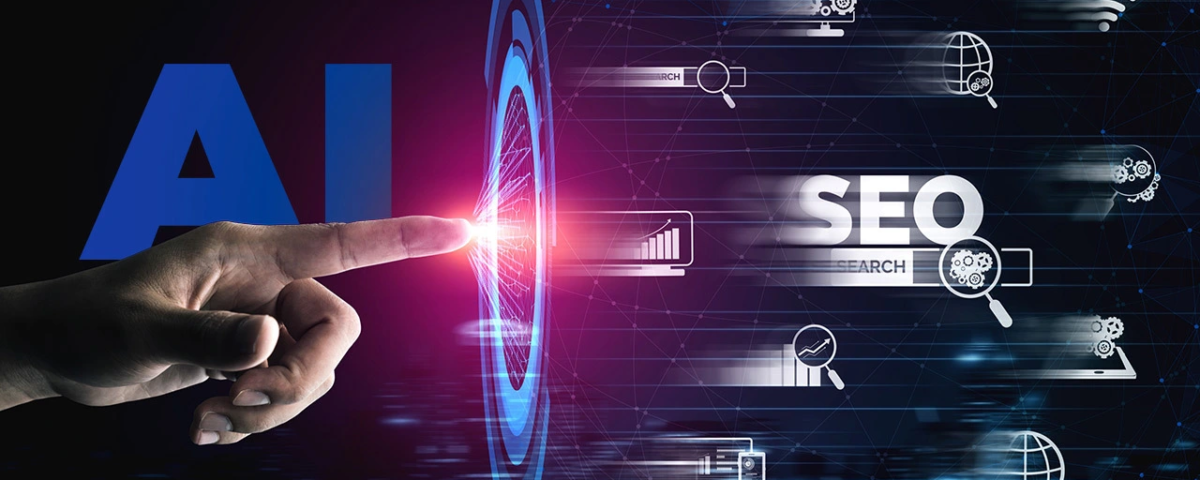
Top AI Marketing Tools Every Business Should Know in 2025
January 15, 2025
Exploring AI-Powered Social Media Management Platforms
January 16, 2025Search Engine Optimization (SEO) has long been the cornerstone of digital marketing. For businesses aiming to gain visibility, attract the right audience, and achieve growth, SEO has remained indispensable. However, the digital landscape is changing rapidly, and so is the way we approach SEO. At the heart of this transformation is Artificial Intelligence (AI), which is redefining traditional SEO strategies by making them smarter, faster, and more effective.
AI-powered optimization tools are leading this revolution, enabling marketers to decode search engine algorithms, predict consumer behavior, and automate repetitive tasks. In 2025 and beyond, these tools aren’t just a luxury—they’re a necessity for businesses seeking to stay competitive.
In this blog, we’ll explore the transformative role of AI in SEO, the cutting-edge tools shaping the future, and the trends that will define this evolving field.
The Evolution of SEO: From Simplicity to Sophistication
The early days of SEO were marked by simplicity. Marketers could rank a webpage by stuffing it with keywords, building basic backlinks, and optimizing meta tags. Over time, search engines like Google grew more sophisticated, incorporating factors like content quality, user experience, and intent into their ranking algorithms.
Enter AI. With its ability to process massive amounts of data, learn patterns, and generate insights, AI has revolutionized how SEO is executed. Today’s marketers no longer rely on guesswork or labor-intensive processes. Instead, they leverage AI tools to perform everything from keyword research to advanced analytics, enabling them to create data-driven strategies.
The future of SEO is intelligent, adaptive, and predictive, powered by AI’s limitless potential.
How AI is Transforming SEO
Let’s take a deep dive into how AI is reshaping the core components of SEO:
1. Smarter Keyword Research and Intent Analysis
Keyword research is a foundational element of SEO. AI has taken this process to new heights by not only identifying high-performing keywords but also analyzing the intent behind them.
AI in Action:
- Tools like SEMrush and Ahrefs now incorporate AI to recommend keywords based on user intent, search trends, and competition.
- Natural Language Processing (NLP) algorithms, like those used in Google’s RankBrain, help identify semantic keywords and related queries.
- Predictive analytics tools forecast future keyword trends, giving businesses a head start on emerging topics.
Why It Matters:
Understanding intent is critical for creating content that truly resonates with users, whether they’re researching, comparing, or ready to purchase.
2. AI-Generated Content
Creating high-quality, optimized content is time-intensive. AI writing tools are revolutionizing this process by generating content that is engaging, relevant, and optimized for search engines.
AI in Action:
- Jasper AI, Writesonic, and Copy.ai use advanced NLP models to generate blog posts, meta descriptions, and social media content.
- Tools like MarketMuse analyze content gaps and provide optimization recommendations for existing articles.
- AI ensures that content aligns with best practices, including keyword usage, readability, and formatting.
Why It Matters:
AI reduces the time and effort required for content creation while ensuring that content meets SEO and user expectations.
3. On-Page Optimization with AI
On-page SEO is critical for ensuring that each webpage is optimized for both search engines and users. AI tools make this process more efficient and precise.
AI in Action:
- Surfer SEO and PageOptimizer Pro provide AI-driven recommendations for improving content structure, keyword placement, and internal linking.
- AI-driven tools analyze user behavior through heatmaps, like those from Crazy Egg, to optimize layouts and navigation.
- AI algorithms assess site performance, flagging issues like slow loading times, broken links, and duplicate content.
Why It Matters:
AI ensures that every page delivers a seamless experience for users while adhering to search engine guidelines.

4. Technical SEO Made Easier
Technical SEO is often complex, involving tasks like crawlability, indexing, and schema markup. AI tools simplify these tasks by automating processes and identifying potential issues.
AI in Action:
- Tools like Screaming Frog and DeepCrawl use AI to conduct comprehensive site audits, pinpointing errors and recommending fixes.
- Schema markup generators, like those integrated into RankMath, ensure websites are optimized for structured data.
- AI monitors site health continuously, alerting marketers to potential problems before they affect rankings.
Why It Matters:
By automating technical SEO, businesses can focus on strategy rather than troubleshooting.
5. Predictive Search Analytics
One of AI’s most powerful capabilities is its ability to predict trends. Predictive search analytics tools analyze historical data to forecast what users will search for in the future.
AI in Action:
- Platforms like BrightEdge provide insights into upcoming keyword trends and seasonal shifts in search behavior.
- Predictive analytics tools help marketers anticipate changes in user intent and adjust their strategies accordingly.
Why It Matters:
Staying ahead of search trends allows businesses to maintain visibility and relevance in an ever-changing landscape.
6. Personalized User Experiences
Search engines increasingly prioritize user experience (UX) in their rankings. AI enables businesses to deliver personalized experiences that cater to individual preferences and behaviors.
AI in Action:
- Tools like Optimizely and Adobe Target use AI to personalize website content and layouts based on user profiles.
- AI-driven chatbots enhance engagement by answering queries and guiding users through the sales funnel.
Why It Matters:
Personalized experiences drive higher engagement, lower bounce rates, and ultimately better search rankings.
7. Voice and Visual Search Optimization
The rise of voice and visual search is changing how users interact with search engines. AI tools are helping businesses adapt their content to these new formats.
AI in Action:
- AnswerThePublic identifies conversational queries for voice search optimization.
- AI tools optimize images and videos for visual search platforms like Google Lens and Pinterest.
Why It Matters:
Voice and visual search are becoming increasingly popular, and businesses that optimize for these formats will gain a competitive edge.

The Benefits of AI-Powered SEO Tools
The integration of AI in SEO offers several key advantages:
- Increased Efficiency: Automates repetitive tasks, freeing up time for strategic initiatives.
- Improved Accuracy: Reduces errors and ensures data-driven decisions.
- Scalability: Enables businesses to manage complex SEO strategies at scale.
- Enhanced Personalization: Delivers customized experiences that resonate with users.
- Future-Readiness: Keeps businesses ahead of algorithm updates and market trends.
Emerging Trends in AI-Driven SEO
As AI continues to evolve, several trends are set to shape the future of SEO:
- Hyper-Personalization: AI will analyze even more granular data to deliver highly tailored experiences.
- Automation of SEO Audits: AI will provide real-time updates and fixes for technical issues.
- Expansion of Visual and Voice Search: These formats will become mainstream, requiring new optimization strategies.
- AI-Assisted Decision-Making: Predictive analytics will play a bigger role in shaping SEO strategies.
Conclusion
The future of SEO is undeniably AI-driven. From optimizing content and keywords to personalizing user experiences and predicting trends, AI-powered tools are revolutionizing every aspect of SEO. Businesses that embrace these technologies will not only achieve better rankings but also build stronger connections with their audiences.
As we move into a new era of digital marketing, the key to success lies in leveraging the full potential of AI. By staying ahead of trends and adopting AI-powered SEO tools, businesses can secure their place at the top of the search results—and in the minds of their customers.
The future of SEO is here. Are you ready to embrace it?


